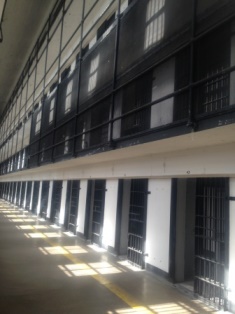
Crime rates and prison populations are dropping at a steady rate in Massachusetts due to many factors. Even larger cities like Boston and Worcester are reporting loweer crime rates.
The same is true of the prison population — which continues to drop. In 2010 the Massachusetts Department of Corrections [DOC] reported 11,429 men and women in custody. By 2018, that number dropped to 9,207 of which only 8,044 are sentenced for a crime.
The latest 2019 figures have not been released, but it is estimated to have dropped even more. This can be due to action by the courts, more alternative sentences that avoid prison, and more district attorneys who understand crimes that are related to substance abuse disorders.
The facts are clear, that in a good economy where crime is dropping and incarceration is dropping, we have to start talking about closing prisons.
With the 2020 State budget about to be decided, the proposed House Budget calls for $677,073,942 for the DOC. Gov. Baker is calling for even more. With some 8,000 incarcerated people, that will equate to more than $80,000 per inmate for one year of incarceration.
The DOC has one of the highest payrolls in the state with many corrections officers doubling their salaries with overtime. In 2018 the overtime account for corrections officers exceeded $32,000,000.
To stop this outflow of our tax dollars, it is time to think of closing prisons. Each prison requires a physical location, an administrative staff, officers, and overhead.
MCI Concord, one of the oldest prisons in the state, would be an excellent first choice to close. According to the DOC, MCI Concord housed 1,324 inmates in 2013. In 2018, that number dropped to only 613.
In 2017, the DOC stated in its facility brochure that it cost some $69,000 for each of the 613 inmates. Compare this to MCI Norfolk where costs was only $46,000 or Gardner NCCI, where the cost was $52,000 per year, per person. For only 613 inmates, as the new numbers may show, Concord MCI needs to close. The buildings are old and some are not usable because of mold and other problems.
MCI Concord is in a prime location and is assessed by the Town of Concord for nearly $40,000,000. In this hot real estate market, this prime property could sell for more.
When we start to close prisons, we can move incarcerated people to other locations. The recent evaluation by the Council of State Governments advised that the DOC assigns people at too high of a custody level, which requires higher staffing levels. More minimum and pre-release facilities could be opened with the money saved by closing a major prison.
The prison education could benefit because for every dollar spent on prison education, five dollars is saved on recidivism. The DOC reports there are nearly 4,000 people on a waiting list for HiSET [High School Equivalency Test] and vocational education. This is a disgrace. We need to make programs and education available to all people in the care of the DOC within six months of coming to prison — or sooner.
This can be achieved by better utilizing technology to educate with tablets that are already in use in the prisons. Former gym space or other areas can be converted into classrooms. When incarcerated people are ready to move to minimum or pre-release, they can work inside or outside the prison to better prepare to go home. The money saved on closing prisons will help the remaining ones gain access to programs, which now have long waiting lists.
There are nearly 3,500 corrections officers who supervise 8,000 sentenced people. Unlike some other states where officers run programs, Massachusetts employs officers primarily for security. With a thriving economy, now is the time to talk about closing prisons and increasing programming.
We taxpayers work hard to support our state, and deserve to see the money spent wisely. None of us would want a doctor who refuses to cure us just so he can continue to bill us for medical services. None of us would want our children with a teacher who fails her students just so that they return next year so she has a job.
In the private sector, jobs are changed all the time and facilities are closed and sold. Even teachers and doctors can be subjected to downsizing. There should be no guarantee of a job when it is no longer needed because taxpayers deserve better use of taxes. It is estimated that the numbers in prison will continue to drop and prisons will become more vacant.
We owe it to those in prison to make changes to save tax dollars and still provide a better experience where prison can actually educate and help those who are sent there. Let’s get ready to start closing prisons because the data is on our side. This is a subject that needs to be addressed and, if not now, when?
—Submitted by a person who has a family member in prison
Very interesting piece, Susan, and a compelling argument. Do you know the source of the data that this woman cites with respect to costs in the different prisons or other data? I want to take this up with Creem and Kahn.
Ros, I know the author quite well, and that person knows quite a bit about the prison system from experience. I’ll post the brochure alluded to in the post.